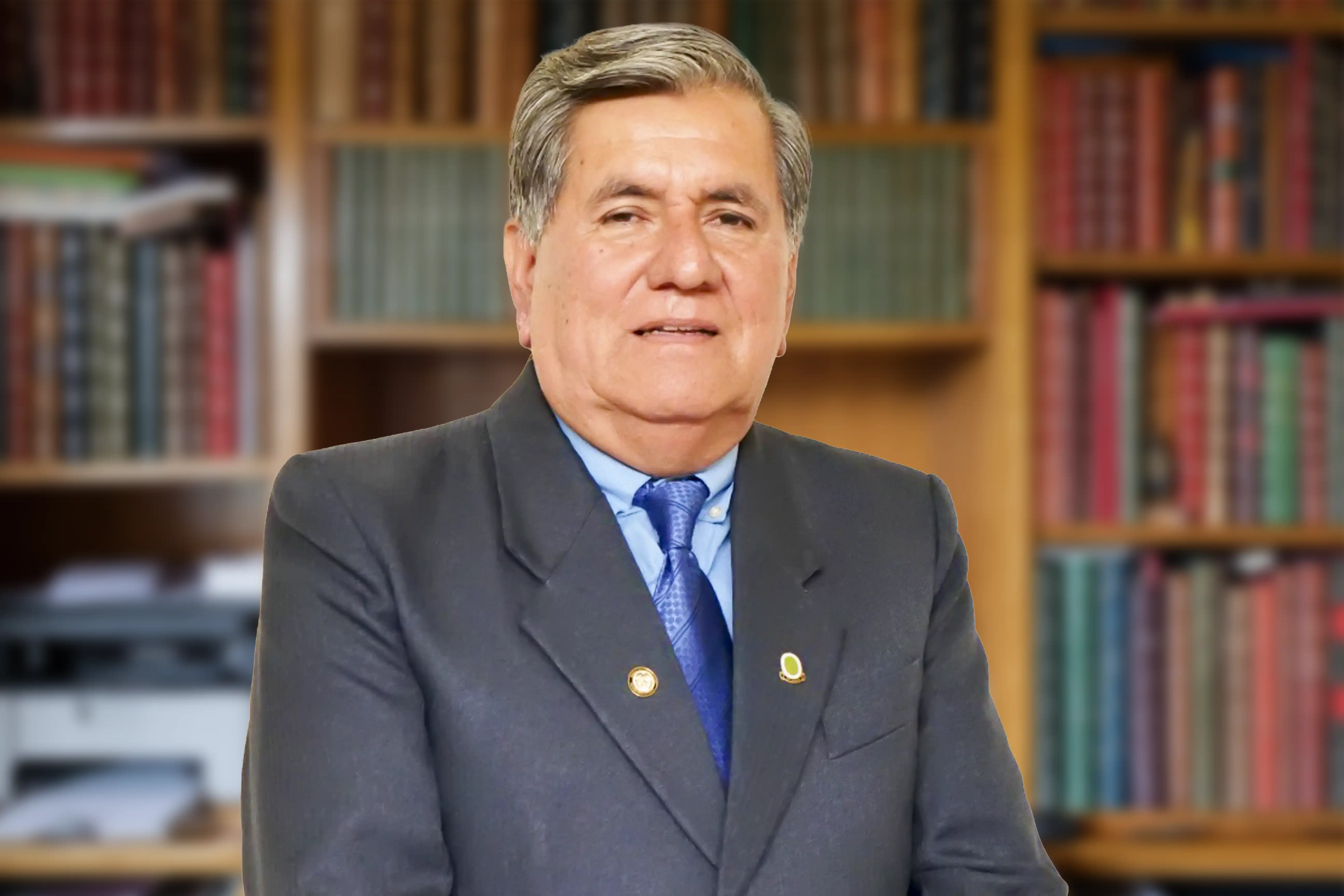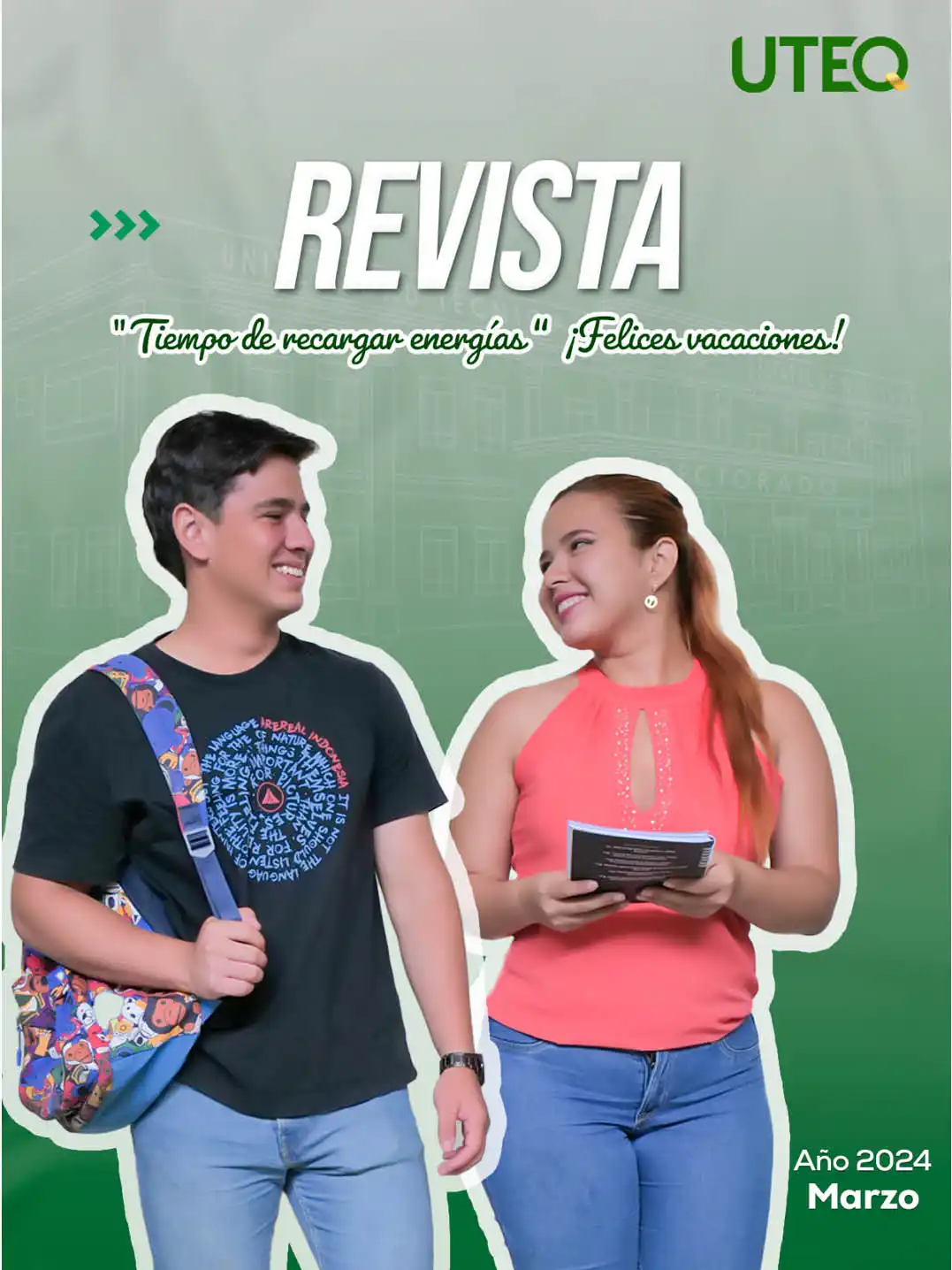Master's Degree in Education with a specialisation in Educational Guidance
CES Resolution: RPC-SO-30-No. 514-2019
Entry profile:
To be a third level professional in the areas of:
- Bachelor degree in Education
- Degree in Educational Psychology
Graduate profile:
Graduates of the Masters Degree in Education with a major in Educational Counselling will be able to:
Know:
- Integrate into their professional culture the relationship between Educational Guidance - comprehensive care of the student - educational quality - developmental learning, within a context of knowledge generation based on knowledge for the relevant use of educational and teaching-learning strategies, promoting critical reflection and analysis to ensure the quality of education, from paradigms of complexity, theories of meaningful learning, education for non- violence, counselling and personal/human development.
Know how to:
- Manage scientific research methods related to Education for Human Development in general and Educational Guidance in particular.
- Produce scientifically based Educational Guidance materials using Microsoft Word and Excel tools to systematise information that ensures the assurance, management and control of Educational Guidance processes and modalities.
- Promote the development of students potential through academic and personal guidance and through educational projects adapted to educational diversity, in order to facilitate interaction with all students in a responsible manner.
- Apply innovative techniques in the design and implementation of educational projects for the integral education of the student, combined with techniques and procedures for group management.
- Skills and competences for educational intervention and guidance.
- Davy J. (2002) points out in his research that, in relation to educational guidance intervention, there is a set of technical, methodological and procedural skills and competences that are considered to be the most necessary for an effective and healthy practice of guidance. Among them, the following can be highlighted:
- Attention to the counselees behaviour: eye contact, culturally and individually appropriate, attention to body language, vocal tones and monitoring of verbal expression.
- Sequential active listening skills: Using open and closed questions, taking in the whole learner, stimulating the learner, using paraphrasing, summarising and reflecting on what has been said.
- Intermediate skills: Confronting, focusing and reflecting on meaning.
- Influencing skills: Directing, logical reasoning, self-opening, interpreting, taking advice, providing information, explaining, instructing and giving feedback.
- Integrative skills: Implementing and following the theory(s) applicable to the learner in which affective, emotional and behavioural patterns emerge in interaction with the learner.
- Establishing effective communication with specialists in other fields of knowledge, as well as with social and governmental actors, in order to carry out research, technological development and educational consultancy activities.
Knowing how to know:
- Use scientific-technical tools that make it possible to implement educational guidance procedures according to the personal development of the student.
- Apply the knowledge of Educational Guidance to achieve the quality of education required for the development of Ecuadorian society, through the development of cognitive skills such as critical analysis, creativity, flexibility, cognitive independence and rational logical thinking, critical reading and reflection.
- Develop strategies, methodologies and programmes that facilitate the appropriate management of educational guidance in the different contexts of student training.
- Use advanced educational technologies to develop guidance processes in the classroom.
- Apply socio-educational projects in the community sphere for the development of community socio-educational guidance.
- Apply management skills to coordinate educational guidance processes at the level of the group, class and individual student.
- Analyse the epistemological, conceptual, methodological and procedural aspects for the characterisation and development of Educational Guidance in the Ecuadorian context.
To be:
- Construct useful knowledge for the fulfilment of their teaching and guidance function, using responsible behaviour from a humanistic ethical-axiological dimension.
- Be aware of oneself, of one is affective and emotional reactions in working with the student, of the thoughts and expectations generated in relation to the student as a person and not only as a learner.
- Identify the values and prejudices that may arise in the dynamics of student guidance.
- To clarify personal motivations and responses to the learner as a person.
- Examine personal and/or ethical dilemmas that may arise in the dynamics of working with the student.
- Demonstrate responsible behaviour in classroom counselling practice.
- Clarify personal boundaries and autonomy between the teacher as counsellor and the student.
General objective
To train professionals linked to the Education process through training and updating that favours the development of their guidance competence, to attend to diversity and favour their personal and academic development, the development of social skills and participative attitudes based on the values of coexistence and non-violence and education for peace, in such a way that they can channel their problems and concerns and manage their emotions through a guidance work that articulates educational and didactic strategies that contribute to the prevention and early detection of learning and behavioural problems in the classroom.
Specific objectives.
- To favour the development of educational projects oriented to the attention of students with low academic performance and to the prevention of this aspect, as well as to the development of educational experiences, which contribute to promote and strengthen emotional intelligence and conflict mediation skills, in terms of prevention and human development.
- Assume guidance as a strategic process in educational systems that enhances personal aspects, promotes and updates the potential of the participating subjects, committing their resources to learning, through the design and implementation of educational experiences that contribute to fostering and strengthening attention to diversity and educational inclusion in regular contexts, assuming values such as solidarity, dialogue, respect, equity, honesty and social justice.
- Promote and strengthen the development of research groups and networks in the field of Educational Guidance, Pedagogy and Didactics; through academic exchange and collaboration between teachers and participants from educational institutions at university level, so that they integrate and systematise new learning and research models related to the purpose of the Master's Programme and in accordance with the National Development Plan 2017-2021. A Lifetime.
Class times:
Friday: 18:00 - 22:00
Saturdays: 08:00 - 14:00
Sunday: 08:00 - 14:00
Modules:
- General foundations of pedagogy
- Philosophy and sociology of education
- Cognitive neurosciences and educational counselling
- Group work and counselling for the development of educational learning
- Methodology of educational research
- Guidance for meaningful learning
- Guidance of students in educational development from the learning process
- Scientific communication
- Strategies for the development of intelligence, creativity and talent
- Guidance and educational innovation
- Educational prevention
- Emotional intelligence education
- ICT and the management of educational projects
- Educational communication management
- Gestión de la comunicación educativa
- Qualification workshop
Entry requirements:
- Colour copy of the university degree, conferred by the Higher Education institution and registered in the SENESCYT. In the case of foreign applicants, the third level degree must be apostilled by consular means and comply with the respective registration in the SENESCYT.
- Copy of the certified degree certificate with the respective grades obtained in the degree.
- Copy of identity card and updated voting card in colour.
- Two 3 x 4 size photos (updated).
- Registration form, cancel registration and legal fees.
- Certificate of proficiency in English A2 of the Common European Framework of Reference for Languages, showing an intermediate level of reading comprehension of scientific articles.
- Record of the third level academic record.
- Letter of motivation from the applicant.
- Employment and academic reference.
Forms of payment
- Account name : State Technical University of Quevedo
- Type of account: Current
- Account number: 8030510
- Bank: Pacífico
- Institutional RUC: 1260001380001 (Necessary information for transfers)
Note: The documents must be submitted to the Post-Graduation Unit.
Academic degree to be obtained:
Duration
18 months

Academic qualifications
- Secondary school teacher specialising in Mathematical Physics. Bachelor of Science in Physics and Mathematics Education. Master in Curriculum Development. Master in Business Administration with emphasis on Strategic Management.
Contact
Phone: (+593) 5 3702-220 Ext. 8022/8023
Email: byepez@uteq.edu.ec

